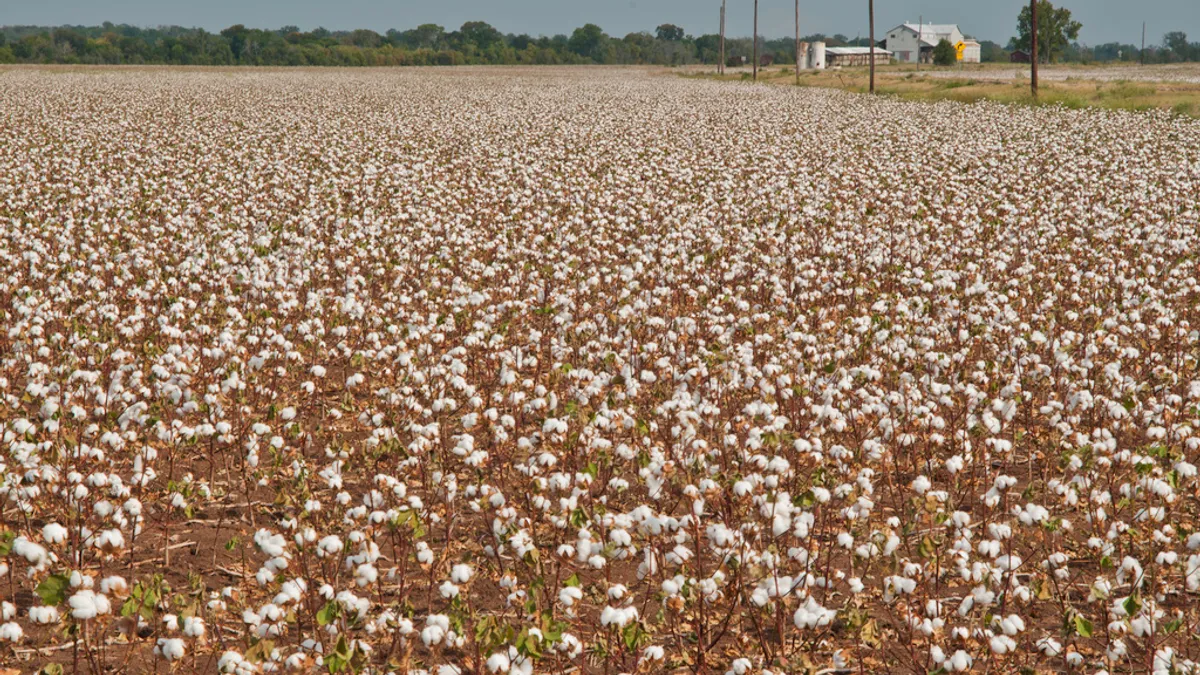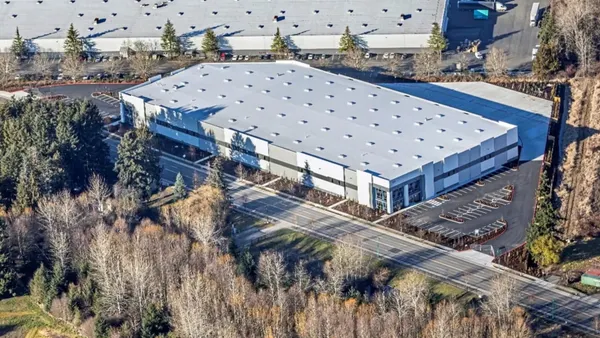WASHINGTON — The government of Uzbekistan wants the boycott against its cotton industry to be over. But it might be hard to convince international brands to begin sourcing from the country as forced labor was still prevalent in the most recent harvest, Eric Gottwald, the deputy director of the International Labor Rights Forum, said Monday during a panel at the National Press Club in Washington.
Uzbekistan is one of the largest cotton producers in the world, but the industry has struggled with child labor in the past and continues to have issues with adult forced labor, according to independent monitors that oversee the country's harvest season. The labor issues have led to a boycott known as the Cotton Campaign, which has called on companies to stop sourcing their cotton from Uzbekistan and Turkmenistan due to issues with forced labor. There is also the Uzbek Cotton Pledge started by the Responsible Sourcing Network.
Azam Farmonov, an independent activist from Uzbekistan who spent 11 years in prison for speaking out against the country's government, sat on the same panel Monday as Javlon Vakhabov, Uzbekistan's ambassador to the United States. Both asked for an end to the boycott against the country's cotton industry. Farmonov passed out a press release that said ending the boycott would help with employment in the country.
The International Labor Organization (ILO) has monitored Uzbekistan's cotton harvest as an independent third party, and its most recent report highlighted signs of improvement. Child labor no longer appears to be an issue (though that's been the case for a number of years now, an ILO representative said), the government itself is not exacting forced labor and the number of forced laborers involved in the harvest is on the decline.
Still, about 170,000 people are forced to work during harvest for no pay, ILO found. This number represents about 6.8% of the workforce, down from 14% in 2015, according to the ILO.
These improvements are likely not enough to get European or American brands to begin sourcing cotton from Uzbekistan, according to Gottwald.
These international brands "can source cotton from a lot of different places around the world," he said. "And so they look at a number of things. They look at quality, but they also look at risk ... State-sponsored forced labor is a significant problem whether we want to call it systemic or not systemic that's fine, but I don't think anyone is going to quibble with 170,000 victims of state-sponsored forced labor in 2018. That's unacceptable to western brands — full stop. I mean, they will not source from a place that carries that kind of risk."
Countries and companies who have turned away from sourcing their cotton from Uzbekistan have instead turned to sources in African countries, India and Turkmenistan. And the country's export numbers have been declining over the years as the Uzbek Cotton Pledge gains more signatories, Patricia Jurewicz, the founder and director of the Responsible Sourcing Network, told Supply Chain Dive in an email.
Even though western companies have decided to boycott cotton from Uzbekistan, that doesn't necessarily mean they can keep it entirely out of their products. Uzbek cotton is still exported to Russia and China, so companies that produce products in these countries could see the cotton seep into their supply through lower-tier suppliers, though this is also decreasing, Jurewicz said.
The government of Uzbekistan said it plans to end forced labor in its cotton fields and has presented various measures it claims will help, including increased automation and the total privatization of the industry by 2022, Ambassador Vakhabov said.
The increased use of automated farm equipment seems to go against Farmonov's desire to end the boycott to help increase employment within the industry. And it's not clear how privatization will help lower the forced labor numbers even though Vakhabov said it "will result in the eradication of the forced labor."
Historically, the cotton sector in Uzbekistan has been completely state-run. And even today, farmers are basically tenants who can be kicked off the land if they're not producing at desirable levels. Privatization of the industry could result in giving farmers autonomy over what they want to farm and is an important reform for the industry, Gottwald said.
But this doesn't mean it will definitively end the use of forced labor. "Just because something is privatized doesn't mean there is not still a labor problem," Gottwald said. "I mean, there is a lot of forced labor in the private sector around the world."














